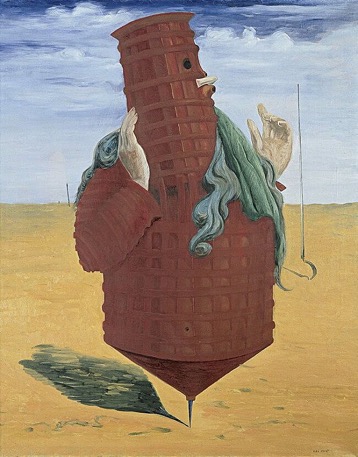SmallDistinctions

Allegory on the Blessings of Peace by Peter Paul Rubens, 1629 - 1630
"Not knowing has always been the first stage of genuine wisdom."
We do not inhabit a world crafted by large decisions but SmallDistinctions. I can't deny that sometimes HUGE effects follow some decisions, but these effects only rarely result from someone deliberately making some momentous-appearing choice, if only because nobody can accurately foretell future momentousness, and only a future can perceive large effects. Us humans seem to prefer to see ourselves as big-time decision-makers, though, and this preference carries a considerable cost. We seek to optimize when some barely good-enough option could do. We wholesale accept or reject when some smaller support or deflection might better preserve. We elect humans to high office expecting them to produce great things, when great things do not seem to be a human property or agency. Our world, like it or lump it, seems most deeply influenced by our eternally nascent ability to make SmallDistinctions encouraging well-informed choices. Standing upon such choices, wise but almost never Large decisions might be made and thereby nudge forward genuine improvement.
We insist that we have huge problems, which naturally seem to consequently require huge solutions, encouraging us to chase after largely irrelevant choices. We easily argue that anything smaller wouldn't solve the so-called problem, so we're called to propose necessarily huge solutions backed by large decisions, framed in terms of either/or. The very perception that some huge solution necessitates making huge decisions seems a 'begged' condition resulting from our initial characterization of some difficulty as a problem. It was a difficulty before we classified it as a problem, but once thus classified, we set about seeking some solution of similar magnitude to the identified problem, for problems necessarily require solutions. Difficulties do not demand resolution in the same way that problems seem to seek solutions, and I chose the phrase 'seem to' to make a SmallDistinction. Once classified as a problem, the difficulty 'seems to' require a solution of equal magnitude. Before classification, the difficulty was little more than an observed difference which might be dispatched with a much wider array of alternative responses than one BIG F^@KING HAMMER solution.
Difficulties seem more addressable by means of nudges rather than by blows. Blows require a focus of extreme energy which seems difficult to muster and often essentially impossible to bring to bear. Many contesting elements need alignment, and quickly the BIG solution becomes an equal or greater difficulty than the originating one classified as 'the problem'. In such ways, our attempts at solving our problems become the problems we seek solutions for, creating a recursive irresolution capable of chasing resolution into infinity. No difficulty needs this strategy, yet we seem to insist upon it.
What if the difficulty was simply a difficulty? I don't mean to demean the trouble, but to more usefully classify it. If it's not a problem, it might not demand any solving. It might be coped with as is or just shifted a tiny bit to render it a bit less troubling. A broader array of possible responses come into focus once solution's taken off the table. Problems often exhibit Damned If You Do/ Damned If You Don't characteristics, seeming to insist upon accepting some form of Damned as table stakes for deciding what to do, when there might be an infinite array of Not Damned Whatever You Do 'resolutions' available. But how does one aspiring Large decision-maker access that more vast (well, at least half-vast) constellation of choices? There's the Million-Dollar Question!
Making some SmallDistinction seems to hold some promise. Reject the default notion that the difficulty in question rightly qualifies as a problem. This seems an unthinkable suggestion, for if you don't classify the difficulty as a problem needing a solution, doesn't that disqualify all your extensive experience as a problem solver from coming into play? Of course you don't yet know which SmallDistinction might transform this difficulty. You might only hold the unprovable conviction that whatever BIG decision you might make will very likely not resolve the difficulty but serve to instead produce ever more difficulties. Dismiss these cascading difficulties as unavoidable externalities if you choose, but damning yourself probably won't help.
At the moment of insight, knowledge seems absent. Insight streaks into a troubling space like a lightening bolt, source essentially indeterminate, cause perhaps attributable more to tension than decision. I corner myself into a space unamenable to solution, inhospitable to big decision, and some deeper insight tends to visit me. It seems to help if I seek something insignificant, like a 1% resolution, rather than aspiring after an grand 110% solution. The difficulty manifests in the here and now, but its significance might well shift over time, so I might usefully 'enlarge the shadow of the future' when seeking some resolutions. I might, in frustration or wisdom, seriously consider employing one of the expansive alternatives offered by taking some Anything But That action. I might make a list of all the responses I would never seriously consider to resolve the difficulty, and actually choose to do one of those, or perhaps 1% of one of those.
Our biggest and hairiest difficulties only rarely respond to our biggest and hairiest attempts to resolve them. These difficulties might not seem in continual flux, though they probably are, given that few phenomena seem truly stabile. The GrandOtter has encountered the necessity of making some hard choices, genuine Damned Whatever She Does decisions. The Muse and I counsel that her first choice might usefully be to reject the notion that a satisfying resolution might result from first damning herself by selecting one of the obvious damning choices, a seemingly SmallDistinction. Of course she hasn't yet imagined what might influence a not-damning resolution. Not knowing has always been the first stage of genuine wisdom.
©2020 by David A. Schmaltz - all rights reserved


